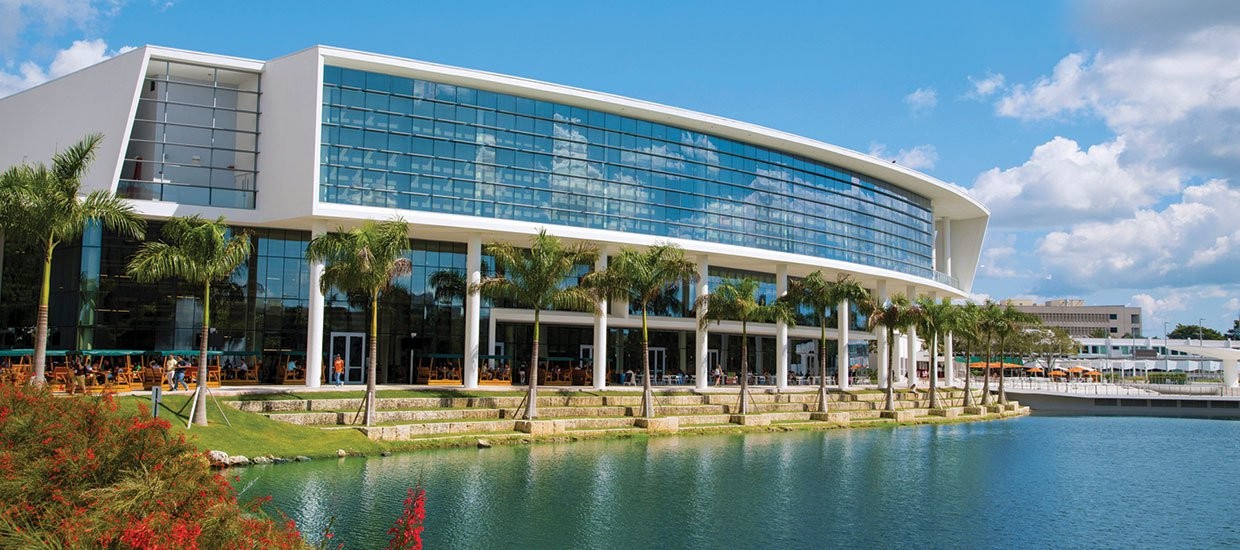University of Miami appoints interim provost and executive vice president for academic affairs
Guillermo “Willy” Prado is so passionate about the process of creating new knowledge that he had his personalized University of Miami license plate inscribed with the letters RSRCH—a truncated version of the word “research.”
“Submitting a grant, executing a study, devoting the time and effort it takes to do a systematic investigation that yields new concepts—that has always fascinated me,” said Prado, dean of the Graduate School, vice provost for faculty affairs, and professor of nursing and health studies, public health sciences, and psychology.
Indeed, that passion has resulted in Prado, a recognized researcher on adolescent health and prevention, having his work appear in more than 190 peer-reviewed articles and serving as principal investigator, co-principal investigator, or mentor on more than $100 million in National Institutes of Health funding.
Now, he will apply the same passion he has for research to his new role as the University’s interim provost and executive vice president for academic affairs.
His new responsibilities come on the heels of Jeffrey L. Duerk, current provost and executive vice president for academic affairs, announced that he will leave the administration and join the faculty as a full-time member—after he takes a one-year sabbatical.
Prado, who begins his new duties on July 1, will be “tasked with maintaining a focus on continuous improvement across our schools and colleges and enhancing the reputation of our academic programs,” President Julio Frenk said.
A double ’Cane alumnus, Prado is excited to take on his new role. “Ultimately, the responsibility for the chief academic officer is to influence what the future of education will look like, not only at the University of Miami but also globally,” Prado said. “Equally as important is assisting faculty, students, and postdocs in their quest to continue to conduct innovative research and helping them to translate that research into practice,” he added.
“So, I’d like to help the University continue to build its culture in that area,” he continued. “We’re a phenomenal institution and we foster a sense of collaboration between faculty and the administration and other key stakeholders. I’m a firm believer that nothing is done in silos, nothing is ever done alone. It really does take a village.”
Earning his Master of Science in statistics in 2000, Prado went on to obtain his Ph.D. in epidemiology and public health in 2005. He earned both degrees from the University and joined the faculty in 2007.
As the founding director of the Division of Prevention Science and Community Health in the Department of Public Health Sciences at the Miller School of Medicine, Prado’s role meant that he was responsible for hiring faculty members and for developing two graduate programs in prevention science.
Prado recently received a $3 million grant from the National Institute on Minority Health and Health Disparities—part of the National Institutes of Health—to expand an intervention he and his research team created and piloted called “Familias Con Orgullo,” or Families with Pride. The family-based program aims to prevent and reduce drug use and depression among Hispanic sexual minority youth.
Serving as the dean of the Graduate School since 2016, Prado oversees the institution’s more than 200 doctoral and master’s degrees and all postdoctoral matters at the University.
As a researcher, Prado focuses on the development, evaluation, and dissemination of parenting interventions for Hispanic youth and their families. Two years ago, he was elected to the prestigious National Academy of Medicine.
Prado is past president of the Society for Prevention Research; a member of the Executive Committee of the Board of Directors of the Academies of Science, Medicine, and Engineering of Florida; and a member of the Executive Committee of the Board of Directors of Research!America, the country’s largest not-for-profit alliance committed to making health research a higher national priority.
He is also the recipient of awards from the Florida Education Fund for his commitment to graduate students of color. In addition, the Society for Prevention Research, Society for Research on Adolescence, and the National Hispanic Science Network recognized his contributions to adolescent health.
Frenk said Prado will work closely with him, Duerk, and CEO Joe Echevarria to ensure a smooth transition for the division of Academic Affairs.

